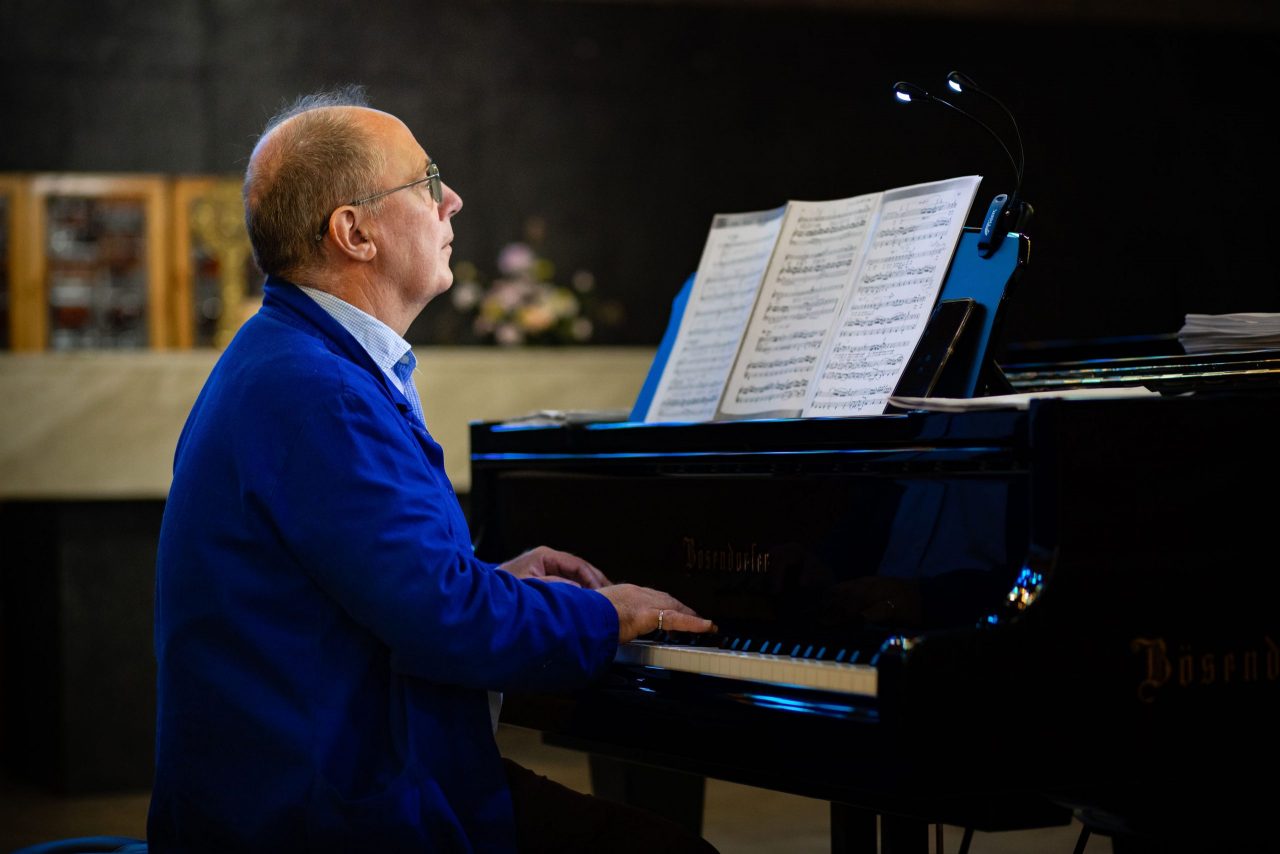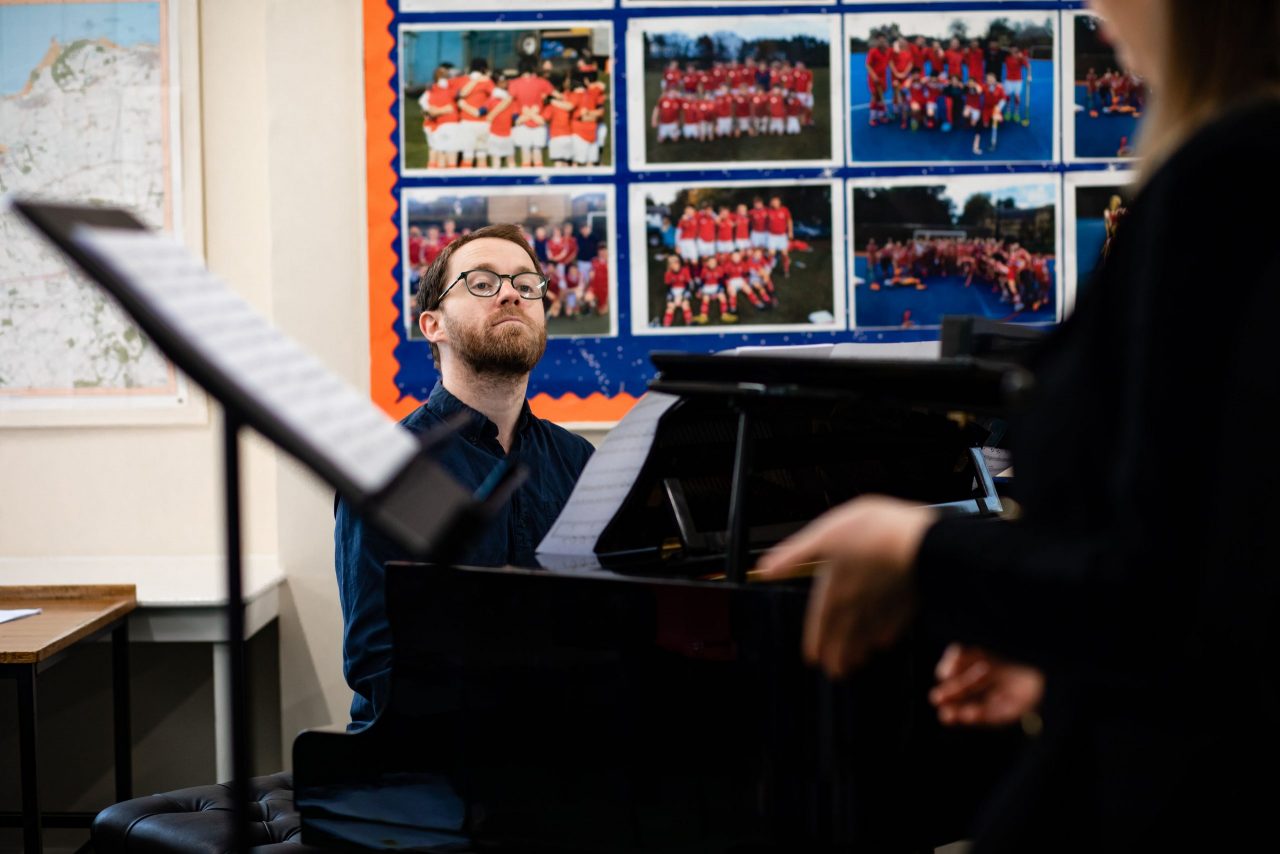Scroll down for thumbnail class descriptions and repertoire requirements for each class. Where not specified, students may bring any suitable own-choice repertoire. At least one piece should be prepared to performance standard, as you may be allocated to sing in one of the Student Showcase concerts. Although we expect classes and tutors to be as listed, we reserve the right to make changes as necessary. Please see Tutors and Accompanists for a summary of classes by tutor.
Ensemble Classes
2024 will see the return of the following ensemble classes:
- Solo Lieder Ensembles led by Richard Jackson
- Solo Oratorio Ensembles led by Lorna Anderson
Repertoire will be allocated following the application deadline once voice types are known. Please choose the relevant ensemble class on the application form.
One to One Classes

Masterclasses
In 2024 we welcome back Oxenfoord Patron Ann Murray DBE and other international and celebrated singers including John Mark Ainsley OBE, Susan Bullock CBE, Karen Cargill, Judith Howarth, Professor Janis Kelly and Nicky Spence OBE. These Masterclasses are faster-paced as the tutors work on fine detail and interpretation through performance. Repertoire choices must be sent in advance and must be fully memorised.

Song and Accompanist Classes
Art Song is led by Artistic Director Malcolm Martineau and will be open to all applicants on the course. These Masterclasses examine the intimate relationship between the solo voice and accompaniment. Songs in all languages are welcomed by this internationally renowned accompanist with a particular focus on the Strauss and Wolf Song books for 2024.
French Mélodie is led by one of the foremost specialists in this field Robin Bowman. Classes focus on the close relationship between text and melody in this repertoire, from the mid 19th and to early/mid 20th Century with a particular focus on the mélodies of Francis Poulenc for 2024.
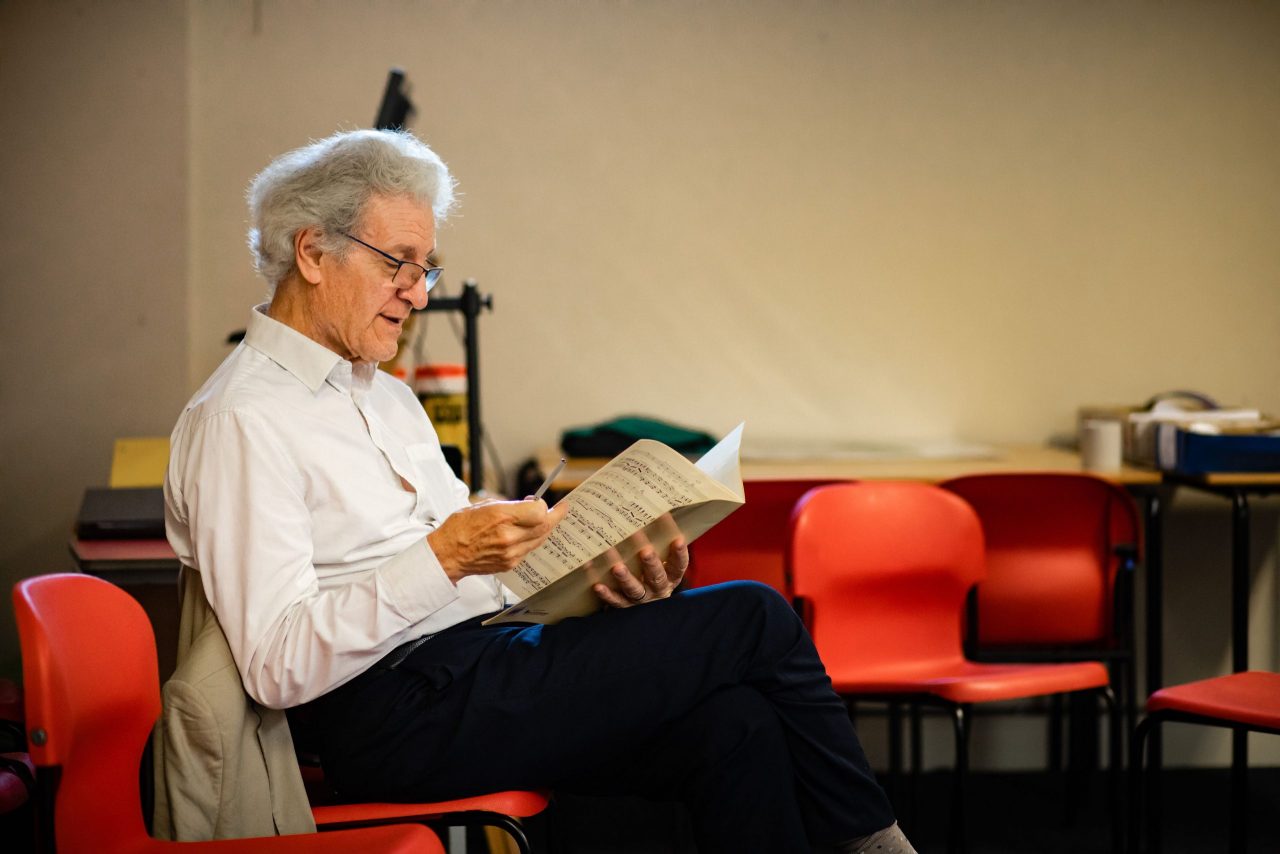
Concert Repertoire is taught by English soprano Sarah Fox. Sarah is an experienced recitalist and this class will concentrate on language, style and interpretation within a song and/or concert aria. Students are encouraged to bring French mélodie to this class.
Female Composers led by Ian Tindale will cover the broad range of females composers in a variety of repertoire. Including, but not limited to:
Lieder
-
- Josephine Lang
- Clara Schumann
- Fanny Mendelssohn-Hensel
- Alma Mahler
- Ingeborg Bronsart
Mélodie
-
- Pauline Viardot
- Cecile Chaminade
- Lili Boulanger
- Germaine Tailleferre
- Hedwige Chrétien
English song
-
- Madeleine Dring
- Rebecca Clarke
- Joan Trimble
- Judith Weir
- Cheryl Frances Hoad
American song
-
- Margaret Bonds
- Undine Smith Moore
- Amy Beach

American Song led by Dylan Perez focuses exclusively on American art song (as opposed to opera or musical theatre). Participants are encouraged to bring not only standard repertoire such as Bernstein, Copland and Ives, but also to explore the diverse array of newer works by contemporary composers such as Jake Heggie, John Musto, Lee Hoiby, Ned Rorem and Lowell Liebermann. A list of suggested composers is available on request however Barber’s Sure on this Shining Night is no longer accepted as part of this class. This class also welcomes the repertoire of contemporary composers from all nationalities who have made a significant impact on the world of classical music since 1976. Any contemporary composers you would like to bring to the class should be submitted and agreed in advance.
Take the Lied led by vocal tutor Richard Jackson explores the vast Song repertoire in the German and French languages. Richard is a very experienced vocal coach and linguist and teaches in many of the leading Music Conservatoires across the UK. Focus will be on language but primarily on the interpretation and performance of the texts in the songs.
Lieder with Richard Stokes explores the highly emotional and expressive German art song repertoire with strong lyrical melodies and rich harmony. Any German Lied is welcome, with a particular focus on the poetry and language to enhance the intricate understandings of this vast repertoire.
Accompanists and Duos is led by pianist Marc Verter and will focus solely on student pianists and the technical challenges faced in challenging accompaniments. Singers may join student accompanists for these classes.
Russian Song with Sergey Rybin is dedicated to all vocal repertoire (both song and opera) in the Russian language. Participants of all language-skill level are welcome. Transliterations can be provided on request for advance preparation.
English Song encompasses a huge variety of styles, from Renaissance lute songs, via Edwardian lyrics and the 20th century revival by composers such as Vaughan Williams, to contemporary music. William Vann, Founder of the London English Song Festival, has a particular interest in this broad repertory, and participants of all standards are invited to explore English song of all eras and styles.
Scots Song taken by Dr Patricia MacMahon is open to all types of traditional and contemporary song, set with Scottish poems/texts. A particular focus are the songs of Francis George Scott.
Late Romantic with Catherine Wyn-Rogers draws on her varied and celebrated career, exploring a variety of Lied from the Late Romantic composers such as Mahler and Korngold.
Baroque Classes
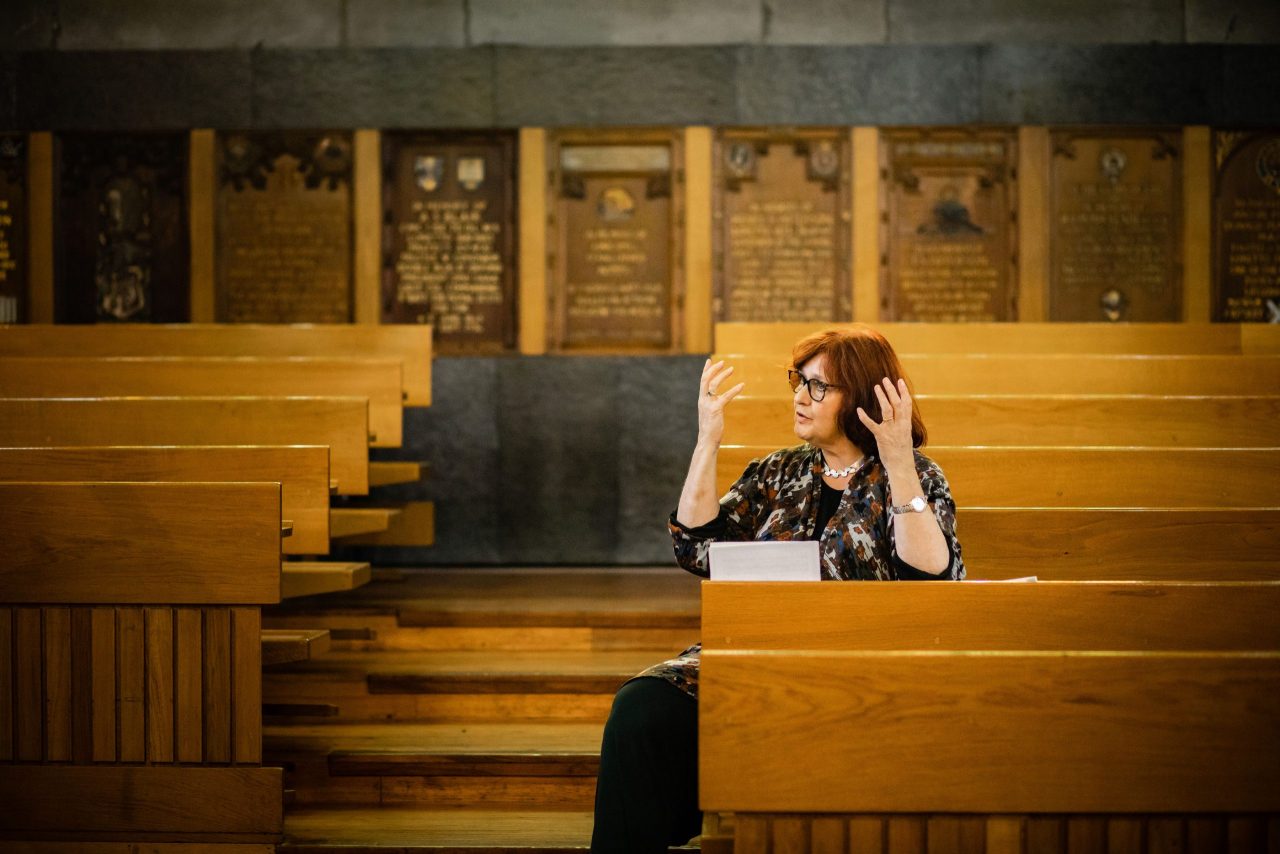
Cantata and Baroque – This class focuses primarily on the sacred and secular music of the Baroque and Classical periods but also invites music from later periods which might feel at home in Loretto’s beautiful chapel. Lorna Anderson will work on the early stages of developing a healthy technique and the style of ornamentation often associated in the Baroque period.
Oratorio – Drawing on the varied career of celebrated mezzo-soprano Catherine Wyn-Rogers, this class explores a variety of sacred and operatic repertoire of the Baroque period to the more romantic repertoire of later years. This class will focus on the performance and interpretation elements singers might consider whilst singing repertoire from these periods.
Back to top
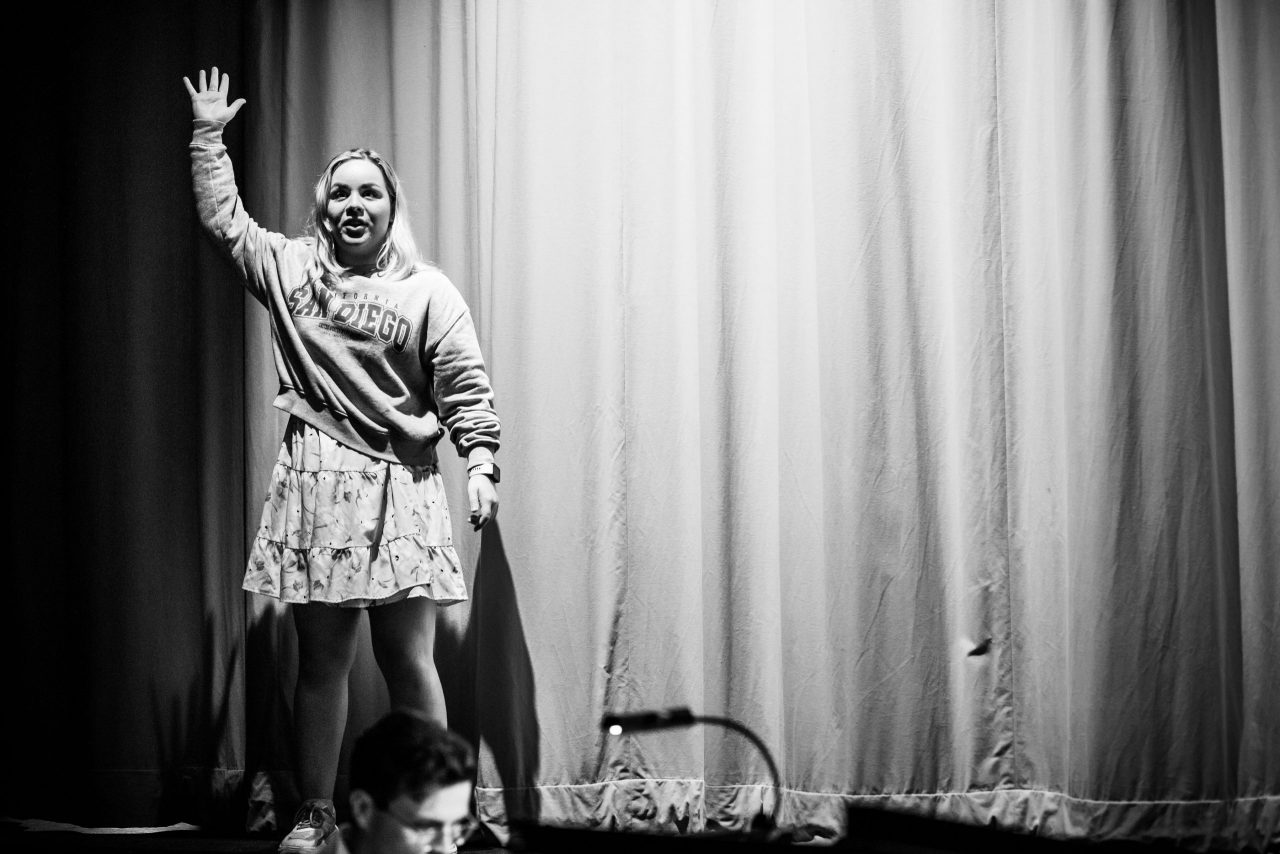
Performance and Performance Preparation
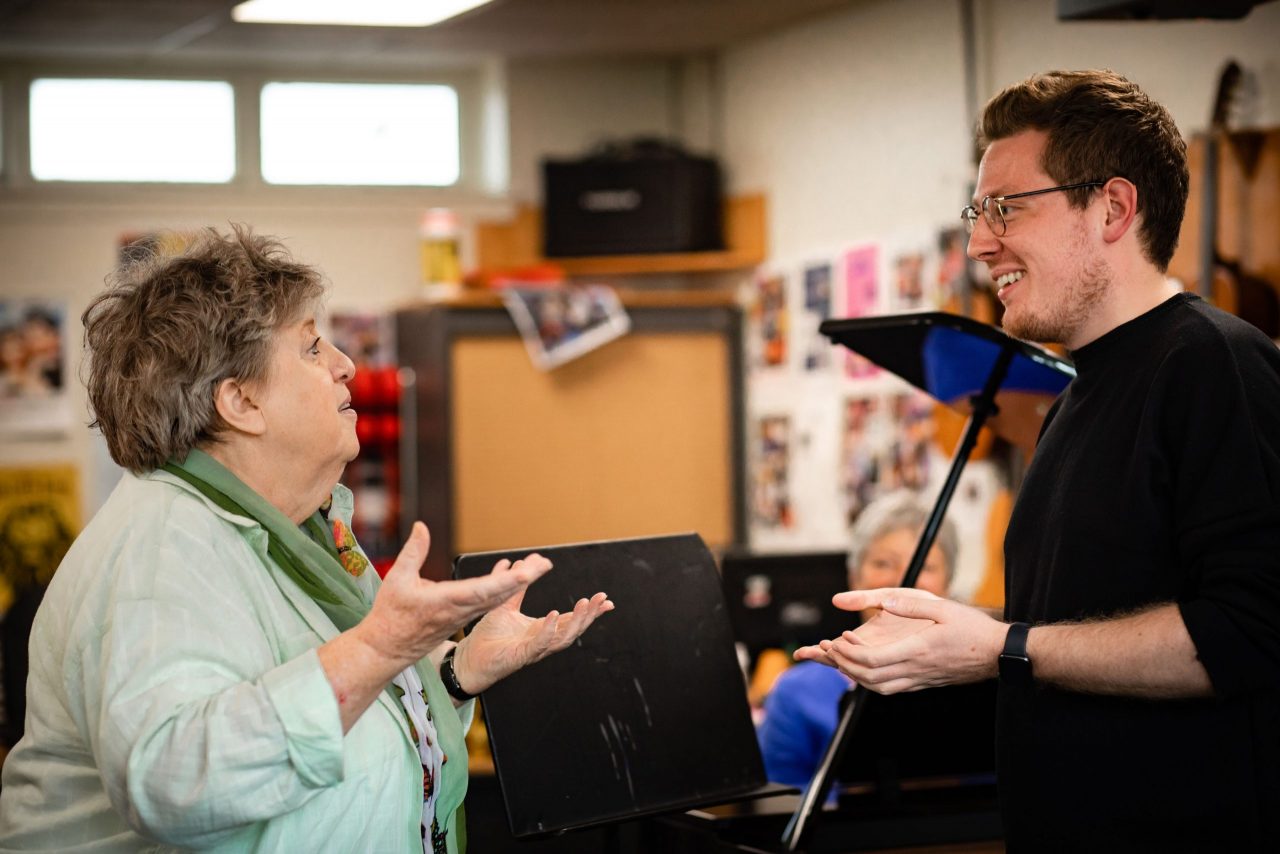
Performance Matters led by Donald Maxwell explores how to get the most out of your aria or song with technique tips and advice on stagecraft.
Led by Linda Ormiston, Cabaret Class welcomes repertoire from the world of Cabaret or Musical Theatre with the opportunity to perform in the popular Lollipops Concert. All songs and arias for this class must be performed by memory. Linda also offers an open Performance Class, working on building up a song or aria for concert performance. Repertoire must be memorised for this class.
New for 2024 soprano Kate Royal takes a Performance Practice Class. Bring a song/aria and explore with Kate the performance elements to give you more tools, confidence and control when you are in ‘performance mode’.
New for 2024 Professor Janis Kelly takes an Opera Aria Class, directing and semi-stage an operatic aria with you. In two sessions you will discuss the role in general and within the aria find a physicality and expression to communicate to an audience. On Wednesday 7th August, a complete performance of all the arias will be held during the 1.45pm Lunchtime Series.
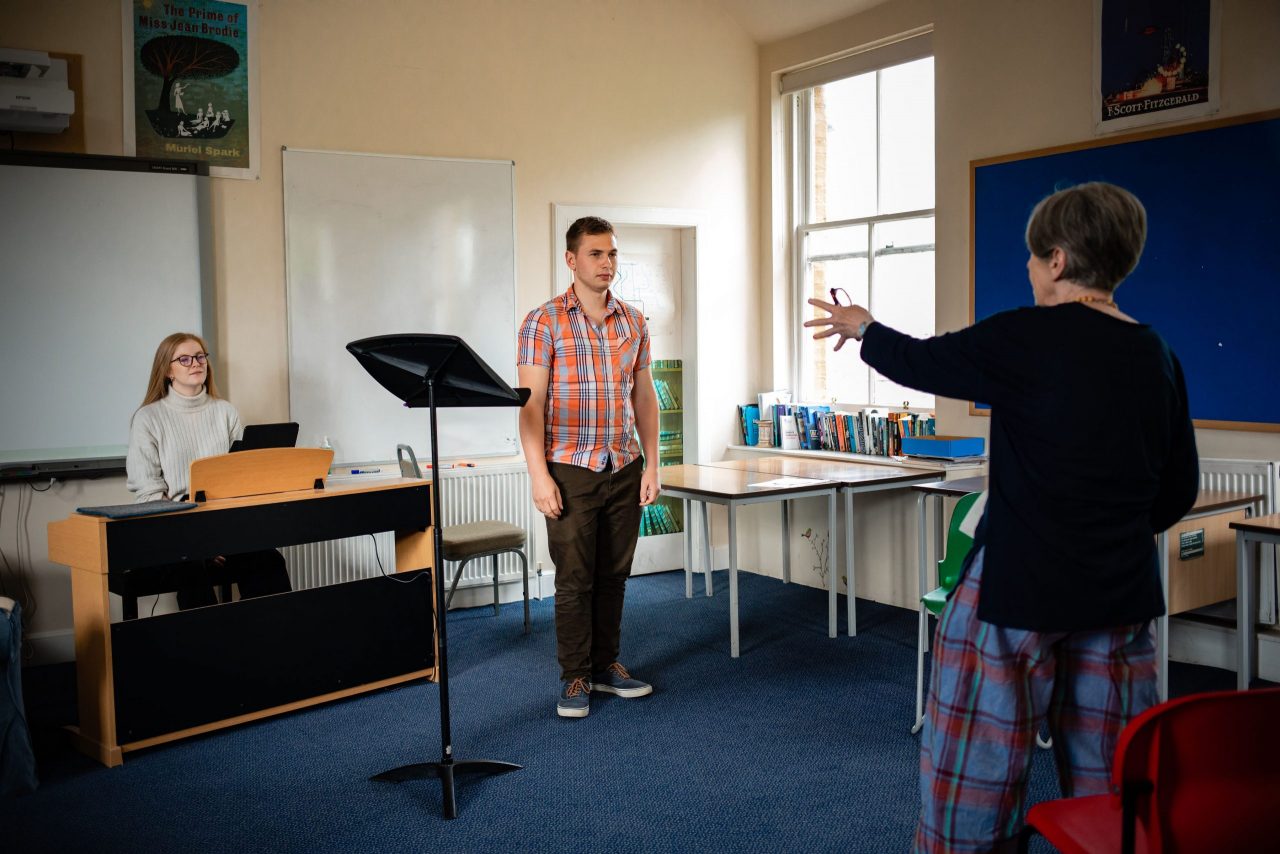
Acting for Singers with Jacquie Crago [English repertoire only] – “My passions as Voice Coach, Actor and Director are text and how to achieve detailed and truthful communication through connection with that text. Over many years of working with actors and musical theatre and opera singers I have become aware that performances frequently suffer from physical ‘tightness’ and inflexibility – often, with singers, the result of an undue concern about ‘hitting the right note’. Of course, musical accuracy is an essential part of the job but it cannot be the only point of focus if the story is to be told in full – on the concert platform as well as in a full blown production. My work helps performers to discover and internalise the emotional details of text, to connect those discoveries with the structure of the music and to communicate the performance freely through the released physical action of the voice. When word and music are fully realised through the performer then there is inspiration. The physical release work is also a great help when grappling with performance nerves!”
Effective Learning Techniques with Ingrid Sawers – This class will cover the various components required to learn repertoire from scratch, suggesting techniques to address pitch, rhythm, text, memory and basic interpretation. It will be of interest to singers (though not addressing vocal technique) and also to pianists who need to learn not only their own part, but gain familiarity with the vocal line and acquire ways of helping/coaching their singer. A piece of unfamiliar repertoire can be supplied at the start of the week as a vehicle for the learning process, but participants are also encouraged to bring any specific examples of problems that they have encountered and wish to address.
Back to top

Vocal Technique

Enjoy your Singing with Joan Busby – “Regain freedom and enjoyment in singing, and really connect with your audience. Would you like to enhance your sound and make it warmer or more sparkling? Are you using your energy efficiently? Do you have easy access to your full range? Are your words clear? Is your voice expressing all you feel about the music? Come and experience technical confidence in this class.”
Voice & Presence with Fiona Dobie – “What do singers want? Surely reliable technique to free our voices and allow ease of production and beauty of tone. Posture, breathing and support all come into this. Plus surely, the ability to inhabit depth of meaning and move our audiences. Many layers come into all aspects of this. However, I believe what sets it all free is being able to bring our unique awareness and presence to text and context with confidence. Then without thinking we need to be perfect, we can allow ourselves to be the best singer we can be, knowing it’s ok to be us and to share our gifts. I love helping singers explore this joyful alchemy, and have many enabling ways to encourage release of imagination and creativity.”
Voice Lessons with Christine Cairns, Wilma MacDougall, Dr Patricia MacMahon, Russell Smythe and Richard Berkeley-Steele are one to one voice lessons tailored specifically to help the student improve their own singing technique. Areas of vocal technique covered will include, tension and release in the passaggio, using the breath as your support mechanism and working to find a healthy, free sound in the voice at the extreme ranges in all voice types. A pianist will attend these classes when available. Students are encouraged bring repertoire they may be working on, so that, by working through selected passages, the basic elements of healthy vocal production can be explored.
Back to top
Opera and Language Coaching
Opera Coaching offered by highly sought-after opera coaches David Cowan, Allyson Devenish, Dave Doidge, Martin Pickard, Susanna Stranders and Duncan Williams bring their wealth of experience working in Opera Houses across the UK, Europe and America to coach singers in the preparation for opera performance. A wide range of repertoire is accepted but please come to the class ready to work on the nuances of language, interpretation and style.
Vocal Coaching with Audrey Hyland, Alice Turner and Jo Ramadan will be tailored to the individual needs of the singer; whether preparing for a performance, adding to their vocal technique or working on greater detail regarding musicianship, language and style. Both operatic and song repertoire will be welcome from singers of all levels but pieces must be prepared before the session.
Back to top

Sung Italian will explore the Melofonetica Method™, a research-based method of Italian diction for singers, based on the phonetics of the sung language. It is fast gaining recognition for its clear and practical approach to helping singers achieve better pronunciation, musicality and expression in Italian opera and classical music. Created by tenor, musicologist and Italian Coach, Dr. Matteo Dalle Fratte, the method is the result of extensive research and work with singers of all levels, from students to professionals, on young artist programmes and at leading UK conservatoires.
Playing Piano Reductions led by Duncan Williams will explore how best to play and support in an ‘orchestral’ way from the piano, whilst also examining the pianistic choices to be made when editing an opera piano/vocal score from the full score.
Back to top
